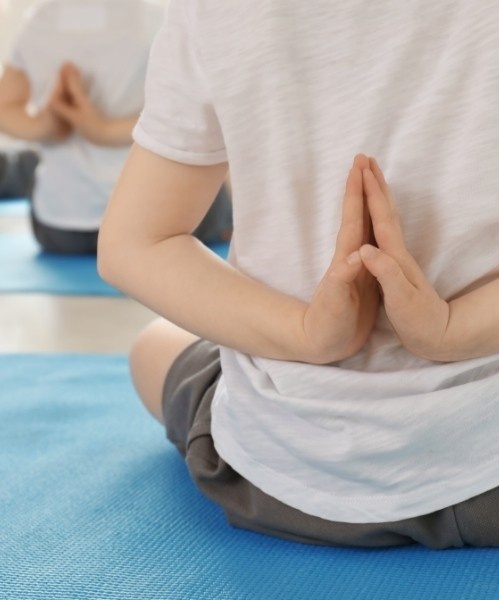Practising yoga balances the mind, strengthens the body, and nurtures the spirit. This is true for everyone, but even more for children with SpLD (specific learning difficulties), such as ADD, ADHD, ASD, Dyslexia, Dyspraxia, etc.
Children with developmental and emotional challenges have very low reserves of ‘coping chemicals’. They have to work very hard because they are not connected with their bodies or their environment. This means their feedback systems are seriously compromised. The vast majority of children with ASD will have used up the little reserves they have before breakfast and spend the rest of the day in a state of ‘fear, fight and flight’. They have no resources to manage their lives challenges and stresses, and their sympathetic nervous system is on ‘red alert’.
We can observe this by their inability to make eye contact, oversensitivity to touch and muscle tension. Generally, our ability to cope with our day-to-day stresses depends on several factors, one of which is the amount of Serotonin we have in reserve - serotonin is the chemical depleted under stress.
When we perform our yoga postures and breathing, we elongate (stretch) the muscle receptors. This elongation releases Serotonin in the brain that counteracts stress and is necessary for coping. Firing joint and muscles receptors fires the pathways and enhances brain chemistry. Serotonin helps us to feel calm and alert and gives us a sense of wellbeing.
Over time a daily routine of yoga helps to enhance the amount of coping chemicals effectively. A regular program can effectively reset the child’s stress response making him/her more calm and resilient to stress and helps to anchor information in memory, enhancing learning.
Research performed by the special yoga centre shows that children who have a daily yoga practice greatly reduce behaviours (crying, screaming, biting, hitting, stimming, anger, whining, etc.).
Yoga is a powerful tool for children with ASD/developmental challenges to experience the following significant improvements by practising yoga regularly:
• improved sleep
• improved self-regulation
• improved concentration
• improved ability to transition between activities
• improved behaviour
• improved speech and communication
• improved toileting
• improved awareness
• improved overall well-being
• improved fine and gross motor skills
• improved balance and coordination
• improved mood
Source: The Special Yoga Centre

'He practices at home all the time and teaches his little brother how to balance'
- Mother of Liam, 9, who is registered blind
'Yoga - happy!!'
- Tekeme, age 10, with severe autism
'His teacher said there was a noticeable difference in his willingness to cooperate after his daily morning sessions'
- Mother of Evan, age 7, ASD

